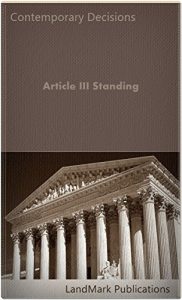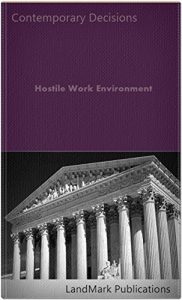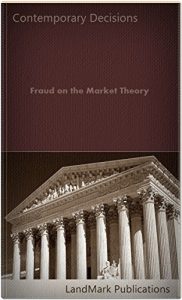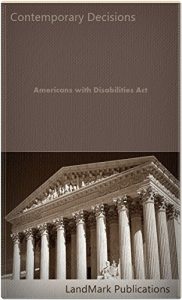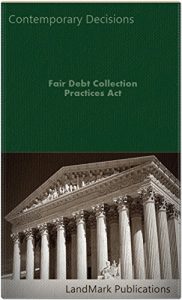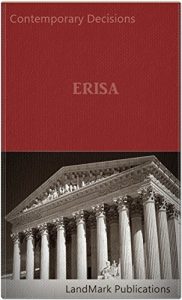THIS CASEBOOK contains a selection of 192 U. S. Court of Appeals decisions that interpret, discuss and apply the constitutional law doctrine of Article III standing. The selection of decisions spans from 2004 to the date of publication.
Constitutional standing refers to the requirement that parties suing in federal court establish that a "Case" or "Controversy" exists within the meaning of Article III of the United States Constitution. Constitutional standing requires (1) that the plaintiff have suffered an "injury in fact"—that is, "an invasion of a legally protected interest which is (a) concrete and particularized and (b) actual or imminent, not conjectural or hypothetical"; (2) that there is "a causal connection between the injury and the conduct" of which the plaintiff complains; and (3) that it is "likely . . . that the injury will be redressed by a favorable decision." Lujan v. Defenders of Wildlife, 504 U.S. 555, 560-61 (1992) (internal citations and quotation marks omitted). American Psychiatric Association v. Anthem Health Plans, Inc., (2nd Cir. 2016).
Unlike the "immutable requirements of Article III," the "prudential principles that bear on the question of standing" are "judicially self-imposed limits on the exercise of federal jurisdiction," and may be altered. Bennett v. Spear, 520 U.S. 154, 162 (1997) (internal quotation marks omitted). They are "founded in concern about the proper—and properly limited—role of the courts in a democratic society." Warth v. Seldin, 422 U.S. 490, 498 (1975). Prudential principles are "closely related to Art. III concerns but essentially matters of judicial self-governance." Id. at 500. Unlike the requisites of constitutional standing, prudential limits "can be modified or abrogated by Congress." Bennett, 520 U.S. at 162. One prudential limit on standing is the principle "that when the asserted harm is a 'generalized grievance' shared in substantially equal measure by all or a large class of citizens, that harm alone normally does not warrant [the] exercise of jurisdiction." Warth, 422 U.S. at 499. Another prudential principle is that a plaintiff may ordinarily assert only his own legal rights, not those of third parties. Id.; see also Singleton v. Wulff, 428 U.S. 106, 113 (1976). American Psychiatric Association v. Anthem Health Plans, Inc., ibid.
. . .
Constitutional standing refers to the requirement that parties suing in federal court establish that a "Case" or "Controversy" exists within the meaning of Article III of the United States Constitution. Constitutional standing requires (1) that the plaintiff have suffered an "injury in fact"—that is, "an invasion of a legally protected interest which is (a) concrete and particularized and (b) actual or imminent, not conjectural or hypothetical"; (2) that there is "a causal connection between the injury and the conduct" of which the plaintiff complains; and (3) that it is "likely . . . that the injury will be redressed by a favorable decision." Lujan v. Defenders of Wildlife, 504 U.S. 555, 560-61 (1992) (internal citations and quotation marks omitted). American Psychiatric Association v. Anthem Health Plans, Inc., (2nd Cir. 2016).
Unlike the "immutable requirements of Article III," the "prudential principles that bear on the question of standing" are "judicially self-imposed limits on the exercise of federal jurisdiction," and may be altered. Bennett v. Spear, 520 U.S. 154, 162 (1997) (internal quotation marks omitted). They are "founded in concern about the proper—and properly limited—role of the courts in a democratic society." Warth v. Seldin, 422 U.S. 490, 498 (1975). Prudential principles are "closely related to Art. III concerns but essentially matters of judicial self-governance." Id. at 500. Unlike the requisites of constitutional standing, prudential limits "can be modified or abrogated by Congress." Bennett, 520 U.S. at 162. One prudential limit on standing is the principle "that when the asserted harm is a 'generalized grievance' shared in substantially equal measure by all or a large class of citizens, that harm alone normally does not warrant [the] exercise of jurisdiction." Warth, 422 U.S. at 499. Another prudential principle is that a plaintiff may ordinarily assert only his own legal rights, not those of third parties. Id.; see also Singleton v. Wulff, 428 U.S. 106, 113 (1976). American Psychiatric Association v. Anthem Health Plans, Inc., ibid.
. . .
